- Los Angeles Lakers were swept by the Denver Nuggets in the NBA Western Conference finals
- The Lakers are now eliminated and will shift their focus to the off-season
- There are several things the Lakers have to do in the off-season if they want to contest for the Championship next season
The Los Angeles Lakers experienced a stark contrast in their performance during the 2022-23 season. Initially, they struggled with a 2-10 record and found themselves near the bottom of the Western Conference standings. However, they transformed into a formidable team in the latter half of the season, finishing with a positive record and reaching the Western Conference finals. As the Lakers approach the offseason, they must address several pressing questions regarding their team identity.
General manager Rob Pelinka and the front office face a crucial decision. Should they pursue another star player like Kyrie Irving, potentially sacrificing their depth? This option seems unlikely due to the team’s struggles during the first half of the season with a top-heavy roster.
Additionally, building a championship-contending team around three players earning $130 million becomes challenging under the new collective bargaining agreement. Considering the Lakers’ impressive performance after the trade deadline and their conference finals appearance, it may be more plausible for them to prioritize retaining their young free agents and maintain cap flexibility. This approach becomes even more significant when factoring in their owed first-round picks to New Orleans and Utah in future years.
By making specific roster adjustments such as waiving certain players and renouncing free agents, the Lakers could create significant salary cap space, potentially reaching up to $35 million. However, Irving’s maximum salary starts at $47 million, making it difficult to accommodate him within the Lakers’ cap space. If the Lakers opt to utilize their $30.5 million in the available room, their resources to build around LeBron James and Anthony Davis would include restricted free agent Austin Reaves, Max Christie, the $7.6 million room exception, and two draft picks. The remaining roster spots would be filled with players signed to the veteran minimum exception, leaving the team vulnerable in terms of depth. It’s worth noting that Davis, Irving, and James have all struggled with injuries in recent seasons, failing to reach the 65-game mark consistently.
To retain Rui Hachimura while acquiring Irving, a complex sign-and-trade scenario involving cooperation from the Mavericks would be necessary. However, due to the hard cap of $169.5 million, Irving would need to take a significant pay cut for the Lakers to retain Hachimura and Reaves. A sign-and-trade would also require the Lakers to send out salary, which they currently lack unless Mo Bamba and Malik Beasley’s contracts are guaranteed or if D’Angelo Russell agrees to be part of the transaction. To avoid the luxury tax and repeater penalty, the Lakers would need to waive Bamba and decline Beasley’s option, assuming they aim to retain Russell, Lonnie Walker IV, Hachimura, and Reaves.
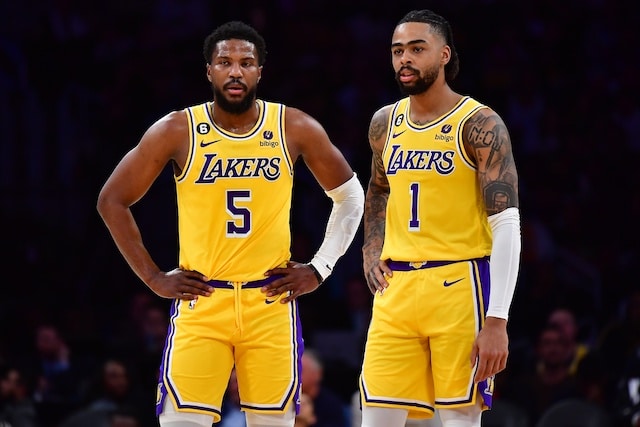
The Los Angeles Lakers traded for Malik Beasley and D’Angelo Russell in February this year and will need to do more trading in during the NBA off-season. | PHOTO: ESPN |
Lakers players’ contract extension
Aside from building the roster through free agency, the Lakers also have important decisions to make regarding their current players. Anthony Davis is eligible to sign a three-year, $167.5 million max extension starting on August 4. Davis displayed impressive performance during the latter part of the regular season, making him a crucial long-term asset for the team. Additionally, D’Angelo Russell has the option to sign up to a two-year, $67.6 million extension before June 30. However, considering the Lakers’ financial outlook, the hefty price tag associated with Russell’s extension may be unfeasible. Russell’s underwhelming performance in key games against Denver further complicates the decision-making process.
As the Lakers navigate the offseason, they must carefully consider their financial constraints, the need for roster depth, and the long-term implications of their choices. Balancing their aspirations to contend for a championship with financial sustainability will be a challenging task for the front office.


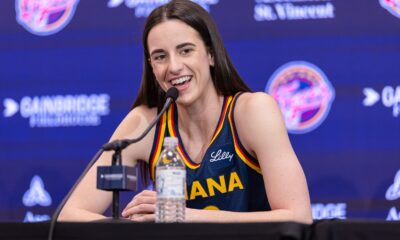

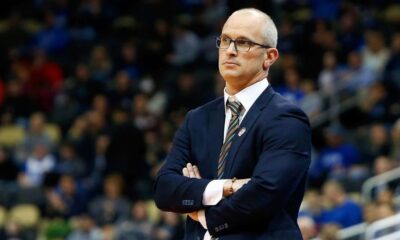

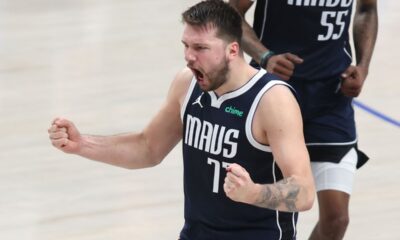


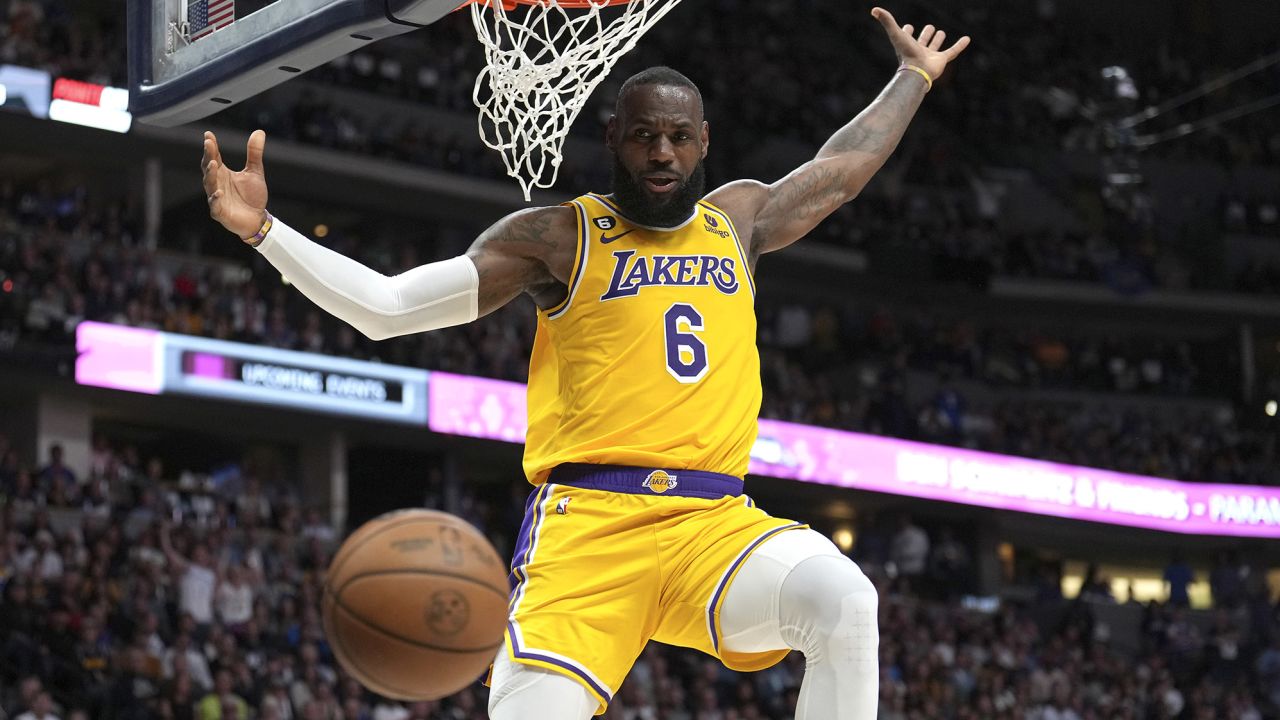





You must be logged in to post a comment Login